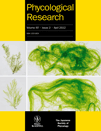
PHYCOLOGICAL RESEARCH
Scope & Guideline
Transforming our understanding of algae and their environments.
Introduction
Aims and Scopes
- Taxonomy and Phylogeny:
The journal focuses on the classification and evolutionary relationships of various algal species, utilizing molecular techniques and morphological studies to explore biodiversity and systematics. - Ecological Interactions and Environmental Responses:
Research published often examines the ecological roles of algae in their environments, including their responses to abiotic factors such as temperature, salinity, and light, which are crucial for understanding their adaptive mechanisms. - Biochemical and Physiological Studies:
A significant emphasis is placed on the biochemical composition of algae, including studies on lipid profiles, secondary metabolites, and photosynthesis, which are essential for evaluating their potential biotechnological applications. - Novel Species Descriptions:
The journal frequently publishes descriptions of new algal species, contributing to the understanding of global biodiversity and the ecological significance of these organisms. - Applied Phycology:
Research addressing the practical applications of algae in areas such as biotechnology, aquaculture, and environmental management is also a core focus, highlighting the importance of algae in sustainable practices.
Trending and Emerging
- Molecular Phylogenetics and Genomics:
An increasing number of studies are employing molecular phylogenetic approaches to resolve complex relationships among algal species, indicating a trend towards genomic research that enhances understanding of evolutionary processes. - Impact of Climate Change on Algal Communities:
Research addressing the effects of climate change on algal physiology and ecology is on the rise, highlighting the urgent need to understand how environmental changes affect algal biodiversity and ecosystem functions. - Biotechnological Applications of Algae:
There is a growing focus on the potential use of algae in biotechnology, particularly in biofuel production, bioremediation, and as nutritional supplements, reflecting a wider interest in sustainable practices. - Microalgae in Marine and Freshwater Ecosystems:
Studies examining the role of microalgae in both marine and freshwater ecosystems are becoming more prevalent, emphasizing their ecological importance and contributions to food webs. - Symbiotic Relationships and Interactions:
Research exploring symbiotic relationships between algae and other organisms is gaining momentum, particularly in understanding mutualistic interactions and their ecological implications.
Declining or Waning
- Traditional Culture Techniques:
There has been a noticeable reduction in studies focusing solely on traditional algal cultivation techniques, as newer, more advanced methodologies and technologies are being adopted in research. - Single-Species Studies without Ecological Context:
Papers that focus exclusively on single-species studies without considering ecological interactions or environmental contexts have become less common, indicating a shift towards more integrative approaches. - Historical Taxonomic Reviews:
Historical reviews of algal taxonomies that do not incorporate molecular data have waned, as the field increasingly relies on genetic information to provide insights into phylogenetic relationships. - Local Biodiversity Assessments:
There appears to be a decline in studies solely focusing on local biodiversity assessments without broader implications, as researchers seek to address global patterns and conservation issues.
Similar Journals
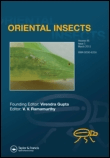
ORIENTAL INSECTS
Advancing Knowledge in Oriental Insect ScienceORIENTAL INSECTS is a distinguished journal dedicated to advancing the field of Insect Science, published by the reputable Taylor & Francis Ltd. With its long-standing history since 1967, this journal provides a platform for innovative research focused specifically on the diverse insect fauna of the Oriental region, encompassing topics such as taxonomy, ecology, physiology, and behavior. The journal is indexed with an ISSN of 0030-5316 and an E-ISSN of 2157-8745, making it easily accessible to a global audience. Although it currently does not operate under an Open Access model, its rigorous peer-review process ensures the dissemination of high-quality research. As a Q4 journal in the Insect Science category for 2023 and ranked 103 out of 181 in Scopus, ORIENTAL INSECTS remains a vital resource for researchers, professionals, and students seeking to enhance their understanding of insect biodiversity and conservation. Located in the United Kingdom, it is committed to promoting the latest scientific findings and fostering collaboration among entomologists worldwide, contributing significantly to the academic community.

ANIMAL BIOLOGY
Connecting Research and Discovery in ZoologyANIMAL BIOLOGY is a distinguished journal published by BRILL, focusing on the dynamic fields of Animal Science and Zoology, as well as Ecology, Evolution, Behavior, and Systematics. With an ISSN of 1570-7555 and an E-ISSN of 1570-7563, this quarterly journal serves as a pivotal platform for researchers and professionals seeking to contribute to the understanding of animal biology across diverse ecological contexts. The journal is recognized with a 2023 Scopus ranking of #234 out of 490 in the Animal Science and Zoology category, placing it within the 52nd percentile, alongside a rank of #409 out of 721 in Ecology, marking a solid contribution to the field. Although it currently holds a Q3 quartile in both categories, its commitment to quality research and novel insights continues to bolster its significance within the academic community. The open access option coupled with its publication history from 2003 to 2024 ensures a wide dissemination of knowledge, drawing in a global audience of researchers, professionals, and students eager to explore the intricacies of animal biology. By promoting high-quality discussions and innovative studies, ANIMAL BIOLOGY plays an essential role in advancing the understanding of life sciences and the evolution of biodiversity.
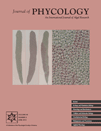
JOURNAL OF PHYCOLOGY
Exploring the Depths of Aquatic and Plant SciencesJOURNAL OF PHYCOLOGY, published by Wiley, is a premier academic journal dedicated to the realms of Aquatic Science and Plant Science. Established in 1965, it has continuously contributed to the advancement of phycology through rigorous research and scholarly discussions. The journal holds an impressive reputation, classified as Q1 in both aquatic and plant sciences for 2023, affirming its position among the top-tier journals in these fields. With a Scopus ranking of 31 out of 247 in Aquatic Science and 75 out of 516 in Plant Science, it stands in the 87th and 85th percentiles respectively, highlighting its influence and impact. While it is not an open access journal, it offers a wealth of valuable insights and original research articles that are essential for researchers, professionals, and students alike. The JOURNAL OF PHYCOLOGY is a critical platform for the dissemination of knowledge on both fundamental and applied aspects of algae, making it indispensable for those who seek to deepen their understanding of this crucial area of biological science.
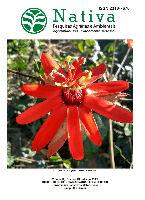
Nativa
Bridging science and sustainability through research.Nativa, published by the Universidade Federal de Mato Grosso in Brazil, stands as a prominent open-access journal since 2013, dedicated to the dissemination of research across various domains of Agricultural and Biological Sciences. With its ISSN 2318-7670, Nativa aims to foster scholarly communication and collaboration among researchers and practitioners worldwide. The journal occupies notable positions within the Scopus rankings, with a Q3 classification in several categories, including Agricultural and Biological Sciences (miscellaneous) and Environmental Science (miscellaneous), while also holding a Q4 classification in areas such as Agronomy and Crop Science and Animal Science and Zoology. This positioning reflects its commitment to advancing knowledge and understanding crucial to sustaining and enhancing our natural resources. Nativa seeks to engage a diverse readership by providing a platform for innovative research, fostering interdisciplinary discourse, and addressing pressing environmental challenges and conservation efforts essential for sustainable development.
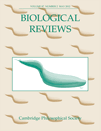
BIOLOGICAL REVIEWS
Exploring the frontiers of agricultural and biological sciences.BIOLOGICAL REVIEWS is a prestigious academic journal published by Wiley, focusing on the expansive fields of Agricultural and Biological Sciences and Biochemistry, Genetics and Molecular Biology. Established in 1924, the journal has upheld its reputation for over a century, advancing both theoretical and applied research aimed at addressing critical biological challenges. With an impressive 2023 Q1 ranking in both its primary categories and a Scopus ranking that places it among the top journals worldwide—ranked #2 in Agricultural and Biological Sciences and #8 in Biochemistry—BIOLOGICAL REVIEWS is at the forefront of scientific inquiry. Researchers, professionals, and students will find a wealth of knowledge in its comprehensive review articles, providing valuable insights into the latest findings and methodologies in the biological sciences. Although not an Open Access journal, its rigorous peer-review process ensures the dissemination of high-quality, impactful research, contributing to advancements in the field while fostering a collaborative scientific community.
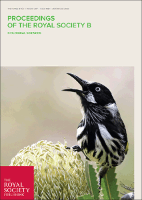
PROCEEDINGS OF THE ROYAL SOCIETY B-BIOLOGICAL SCIENCES
Bridging Disciplines for Scientific ExcellencePROCEEDINGS OF THE ROYAL SOCIETY B-BIOLOGICAL SCIENCES, published by the esteemed Royal Society, stands as a premier platform for disseminating cutting-edge research in the fields of Biological Sciences. With an impressive impact factor reflective of its high citation rates and scholarly contributions, this journal encompasses a wide array of disciplines, including Agricultural and Biological Sciences, Biochemistry, Genetics and Molecular Biology, Environmental Science, and Immunology and Microbiology, consistently ranking in the Q1 category across these fields. Since its inception in 1946, it has been committed to advancing our understanding of biological systems and informing evidence-based practices. Researchers and academics can submit their work without the Open Access barrier, thereby maintaining the integrity of the disciplinary discourse while providing comprehensive insights. The journal's location in the United Kingdom also positions it at the heart of global scientific innovation, making it a vital resource for professionals and students alike who are eager to explore the latest trends and breakthroughs in the biological sciences.

ACTA BIOLOGICA COLOMBIANA
Unlocking the Potential of Biological SciencesACTA BIOLOGICA COLOMBIANA, published by UNIV NAC COLOMBIA, FAC CIENCIAS, DEPT BIOL, is a significant open-access journal dedicated to advancing research in the field of agricultural and biological sciences. Since its inception in 2005, this journal has provided a dynamic platform for scholars to share their findings, fostering scholarly communication and collaboration within the scientific community. With an ISSN of 0120-548X and an E-ISSN of 1900-1649, it maintains a visible presence in the academic landscape, evident in its Q3 ranking in the 2023 Agricultural and Biological Sciences category and a Scopus rank of 117 out of 221, placing it in the 47th percentile. The journal's commitment to inclusive access facilitates greater dissemination of knowledge, as it serves researchers, professionals, and students in Colombia and beyond. Spanning articles from 2008 to 2024, ACTA BIOLOGICA COLOMBIANA is poised to continue its vital role in shaping the future of biological research.
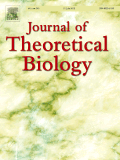
JOURNAL OF THEORETICAL BIOLOGY
Innovating Insights into Complex Biological SystemsJOURNAL OF THEORETICAL BIOLOGY, published by Academic Press Ltd - Elsevier Science Ltd, stands as a pivotal source of scholarly research in the domains of theoretical and applied biological sciences. Since its inception in 1961, this esteemed journal has contributed significantly to the advancement of knowledge across various fields, including agricultural sciences, applied mathematics, biochemistry, genetics, immunology, and medical research. With a commendable Q2 ranking in multiple categories for 2023, it showcases robust impact throughout the academic community, reflected in its high Scopus rankings, which place it in the top 25% of journals in several categories. The journal's commitment to fostering interdisciplinary research supports its objective of bridging theoretical frameworks with practical applications, making it an essential resource for researchers, professionals, and students alike. With its wide-ranging topics and a keen focus on innovation, the JOURNAL OF THEORETICAL BIOLOGY is indispensable for those seeking to explore the complexities of biological systems and their mathematical modeling.

Molecular Ecology Resources
Empowering Research at the Molecular-Ecological NexusMolecular Ecology Resources, published by WILEY, is a leading international journal that specializes in the intersection of molecular biology with ecology and evolution. With an impressive impact factor signified by its Q1 status in multiple categories, including Biotechnology, Ecology, Evolution, Behavior and Systematics, and Genetics for 2023, this journal stands as a reputable source of groundbreaking research within the fields of agricultural and biological sciences. Its Scopus rankings are particularly noteworthy, placing it in the top tier of its respective categories, demonstrating its significance in advancing our understanding of molecular ecology. The journal has been committed to fostering high-quality scientific discourse from 2008 to 2024 and offers open access options to enhance its visibility and accessibility. As a researcher, professional, or student in these dynamic fields, engaging with Molecular Ecology Resources means contributing to and staying informed about the latest innovations and methodologies that shape our understanding of the biological world.

Biology-Basel
Pioneering Research for Tomorrow's SolutionsBiology-Basel is a premier, peer-reviewed open-access journal published by MDPI since 2012, situated in the heart of Switzerland. With an E-ISSN of 2079-7737, this journal serves as a vital platform for the dissemination of innovative research across the broad spectrum of Agricultural and Biological Sciences, Biochemistry, Genetics, Molecular Biology, and Immunology. Recognized for its rigorous editorial standards and impactful findings, it currently ranks Q1 in Agricultural and Biological Sciences and holds impressive positions in several categories according to the 2023 Scopus rankings. The journal’s open-access model ensures that high-quality research is freely available to a global audience, fostering collaboration and knowledge sharing among researchers, professionals, and students alike. Spanning from 2012 to 2024, Biology-Basel is committed to reflecting the latest advancements in biological sciences, making it an essential resource in the ever-evolving landscape of biological research.